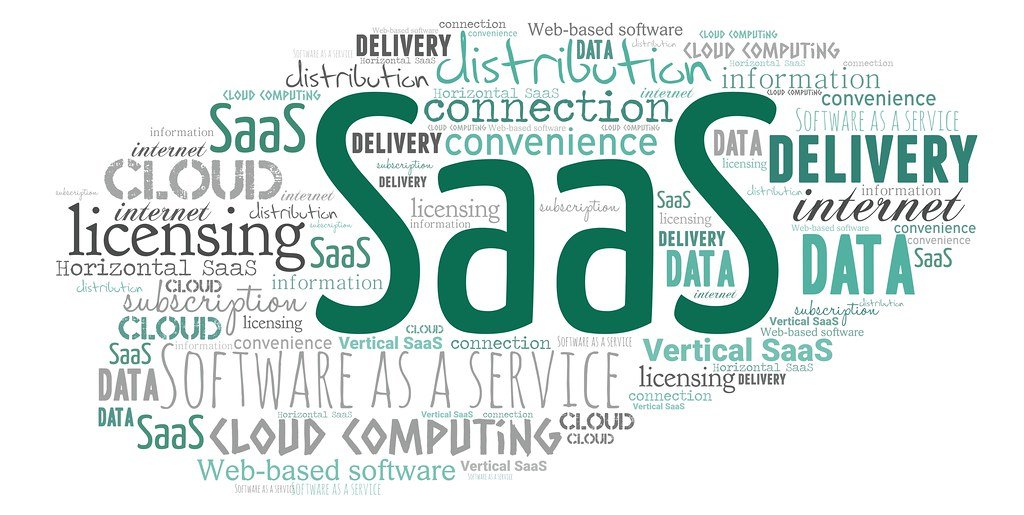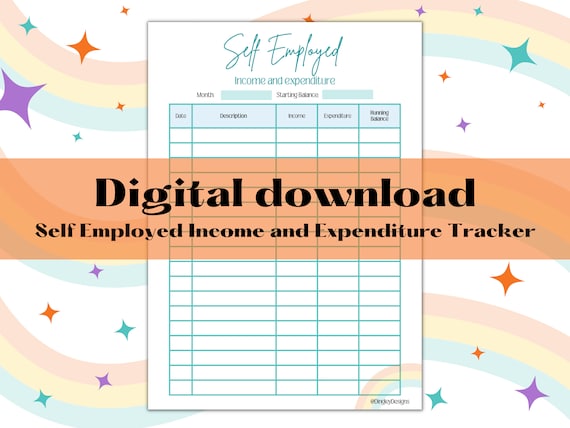Tracking income is crucial for self-employed individuals. It ensures financial stability and tax compliance.
Running your own business offers freedom and flexibility. But it also comes with challenges, especially in managing finances. Self-employed income tracking is essential to avoid financial pitfalls and to understand your earnings and expenses. It’s more than just keeping receipts; it’s about having a clear picture of your financial health.
This helps in making informed decisions and planning for the future. Whether you’re a freelancer, consultant, or small business owner, tracking your income accurately can save you time and stress. Let’s explore the importance and methods of self-employed income tracking to keep your business on the right track.
Table of Contents
Introduction To Self-employed Income Trackin
Tracking income is crucial for anyone who is self-employed. Proper income tracking helps in managing finances, filing taxes, and understanding the financial health of your business.
Importance Of Income Tracking
Income tracking helps in several ways:
- Budgeting: Knowing how much you earn aids in creating a budget.
- Tax Filing: Accurate records simplify tax filing.
- Financial Health: It shows how well your business is doing.
Tracking income is also essential to avoid financial problems. It ensures you know where your money comes from. This makes it easier to plan for future expenses.
Common Challenges Faced
Many self-employed people face challenges in tracking their income:
- Inconsistent Income: Earnings can vary each month, making tracking hard.
- Multiple Income Sources: Having many clients or projects complicates tracking.
- Lack of Tools: Not everyone has access to good accounting tools.
Understanding these challenges is the first step to overcoming them. Use spreadsheets or apps to make tracking easier. Keep all receipts and invoices organized.
Choosing The Right Tools
Tracking your self-employed income is crucial. Choosing the right tools can simplify this task. Efficient tools help you keep accurate records and save time. Below are some options to consider.
Accounting Software Options
Using accounting software can streamline your income tracking. Here are some popular choices:
- QuickBooks: Easy to use and integrates with many banks.
- Xero: Offers a mobile app and supports multiple currencies.
- FreshBooks: Best for invoicing and expense tracking.
- Wave: Free and great for small businesses.
QuickBooks is user-friendly. It offers various features like invoicing, expense tracking, and financial reporting. Xero is known for its strong integration with other apps. It also supports multiple currencies, making it ideal for freelancers with international clients.
FreshBooks simplifies invoicing and expense tracking. It’s perfect for service-based professionals. Wave is a free option. It suits small businesses looking for basic accounting solutions.
Mobile Apps For Tracking
Mobile apps make income tracking on the go easy. Here are some excellent choices:
- Expensify: Great for tracking receipts and expenses.
- Zoho Books: Offers mobile invoicing and expense management.
- Hurdlr: Tracks income, expenses, and mileage.
- And.co: Combines task management with income tracking.
Expensify helps you track receipts and expenses. It’s simple and efficient. Zoho Books offers comprehensive features for invoicing and managing expenses. It’s ideal for detailed tracking.
Hurdlr not only tracks income and expenses but also mileage. It’s a multi-functional tool for freelancers. And.co combines task management with income tracking. This makes it a unique choice for busy professionals.

Creating A System
Tracking income as a self-employed individual can be overwhelming. Creating a system helps you stay organized and ensures you don’t miss any important details. A structured system can make tax time less stressful and give you a clearer picture of your financial health.
Setting Up Categories
Start by setting up categories for your income. This helps you see where your money is coming from. Common categories include:
- Client Payments: Money received from clients.
- Product Sales: Income from selling products.
- Freelance Work: Earnings from freelance projects.
- Consulting Fees: Fees received for consulting services.
Using categories makes tracking easier. You can quickly see which areas are most profitable.
Developing A Routine
Developing a routine is crucial for consistent income tracking. Set aside time each week to update your records. This could be every Friday afternoon or Monday morning.
Here are some steps to help develop a routine:
- Gather Receipts: Collect all receipts and invoices.
- Enter Data: Input the data into your tracking system.
- Review Entries: Double-check for accuracy.
- Analyze Trends: Look for income patterns.
Consistency is key. A regular routine ensures nothing slips through the cracks.
Recording Income
For self-employed individuals, recording income is crucial. It helps track earnings, manage taxes, and understand financial health. This process involves maintaining accurate records of all income sources. Let’s dive into how you can do this effectively.
Documenting Invoices
Documenting invoices is a key part of income tracking. Create a system for generating and storing invoices. This helps ensure you record every payment due. Use software to automate invoicing. It saves time and reduces errors.
Each invoice should include:
- Client’s name and contact
- Invoice number
- Service or product details
- Amount due
- Payment terms and due date
Save copies of all sent invoices. This helps you track who has paid and who hasn’t. It also provides proof of income for tax purposes.
Tracking Sales And Payments
Tracking sales and payments is another essential step. Use a ledger or software to record each sale. Note the date, amount, and payment method.
Consider using a table to organize this data:
| Date | Client | Amount | Payment Method | Status |
|---|---|---|---|---|
| 2023-10-01 | Client A | $500 | Credit Card | Paid |
| 2023-10-05 | Client B | $300 | Bank Transfer | Pending |
This helps you see outstanding payments at a glance. It also assists in cash flow management.
Set reminders for due payments. Follow up with clients promptly. This ensures you receive payments on time.
Managing Expenses
For self-employed individuals, managing expenses is vital. It helps to track your business’s financial health. Proper expense tracking ensures you know where your money goes. This can help you save on taxes and make informed decisions.
Categorizing Expenses
To manage expenses effectively, categorize them. This makes it easier to see your spending patterns. Common categories for self-employed individuals include:
- Office Supplies: Paper, pens, and other supplies.
- Travel Expenses: Flights, hotels, and transportation.
- Marketing Costs: Ads, website fees, and promotional materials.
- Professional Services: Legal fees, accounting services, and consulting.
- Utilities: Internet, phone, and electricity bills.
Using categories helps in understanding where to cut costs. It also aids in budgeting for future expenses.
Tracking Receipts
Tracking receipts is crucial for accurate expense reporting. Keep all your receipts in a safe place. Digital receipts can be stored in cloud services.
Some methods to track receipts include:
- Use Apps: There are many apps available to scan and store receipts.
- Digital Storage: Store scanned receipts in cloud services like Google Drive.
- Physical Filing: Keep physical copies in a folder organized by month.
Consistent receipt tracking makes tax time easier. It also helps in case of an audit. Make it a habit to track receipts immediately after making a purchase.
| Category | Example Expenses |
|---|---|
| Office Supplies | Paper, pens, printer ink |
| Travel Expenses | Flights, hotels, car rentals |
| Marketing Costs | Ads, website fees |
| Professional Services | Legal fees, accounting services |
| Utilities | Internet, phone bills |
Effective expense management helps you stay on top of your finances. It ensures you make informed decisions and save money where possible. Always keep your expense tracking organized and up-to-date.

Tax Preparation
Keeping track of income can be challenging for the self-employed. Tax preparation is an essential part of this process. It ensures you comply with the law and optimize your earnings. Let’s break down the key areas of tax preparation for self-employed individuals.
Estimating Quarterly Taxes
Self-employed individuals must pay taxes quarterly. This helps avoid a large tax bill at the end of the year. Estimate your quarterly taxes based on your income. Use the IRS Form 1040-ES for guidance.
| Quarter | Due Date |
|---|---|
| Q1 | April 15 |
| Q2 | June 15 |
| Q3 | September 15 |
| Q4 | January 15 (following year) |
Keep track of your earnings and expenses. This helps in accurate estimation. Use accounting software or a spreadsheet to record everything. This makes calculations easier.
Deductions And Write-offs
Self-employed individuals can lower their taxable income through deductions. Common deductions include:
- Home office expenses
- Business travel costs
- Supplies and equipment
- Health insurance premiums
Maintain detailed records of these expenses. Receipts, invoices, and bank statements are useful. This documentation supports your claims during tax filing.
Some lesser-known deductions include:
- Professional development courses
- Advertising expenses
- Membership fees for professional associations
Use the IRS Schedule C form to report these deductions. Accurate reporting can significantly reduce your tax liability.
Remember, good record-keeping is crucial. It makes tax time easier and ensures you don’t miss out on any deductions.
Analyzing Financial Data
Tracking income as a self-employed individual is crucial. Analyzing your financial data helps you understand your business’s financial health. This process involves creating detailed reports and understanding profit and loss.
Creating Financial Reports
Financial reports are essential for self-employed individuals. They provide a clear picture of your earnings and expenses. Creating these reports can be straightforward. Use simple tools like spreadsheets or dedicated accounting software.
Here are some key reports you should generate:
- Income Statement: Shows your total revenue and expenses.
- Balance Sheet: Summarizes your assets and liabilities.
- Cash Flow Statement: Tracks the flow of cash in and out of your business.
| Report Type | Purpose |
|---|---|
| Income Statement | Shows revenue and expenses |
| Balance Sheet | Summarizes assets and liabilities |
| Cash Flow Statement | Tracks cash movement |
Understanding Profit And Loss
Understanding your profit and loss is vital. It helps you make informed business decisions. Your profit and loss statement shows how much money you are making or losing.
- Revenue: Total income from your business activities.
- Cost of Goods Sold (COGS): Direct costs related to producing your goods or services.
- Gross Profit: Revenue minus COGS.
- Expenses: All other costs, like rent and utilities.
- Net Profit: Gross profit minus expenses.
Regularly reviewing your profit and loss statement allows you to spot trends. You can identify areas where you may need to cut costs or increase revenue.
Improving Financial Health
Improving Financial Health is crucial for anyone, especially for the self-employed. Effective income tracking can lead to better financial stability. By managing your finances well, you can avoid stress and achieve long-term success.
Setting Financial Goals
Setting clear financial goals helps you stay focused. Start by determining what you want to achieve. This can be paying off debt, saving for a vacation, or buying new equipment. Clear goals keep you motivated.
Break your goals into smaller, manageable steps. Use the SMART framework to set goals that are Specific, Measurable, Achievable, Relevant, and Time-bound. For example:
- Specific: Save $5,000 for a new laptop.
- Measurable: Track your savings monthly.
- Achievable: Save $500 per month.
- Relevant: A new laptop will improve productivity.
- Time-bound: Reach the goal in 10 months.
Building An Emergency Fund
An emergency fund is essential for financial health. It provides a safety net for unexpected expenses like medical bills or car repairs. Aim to save at least three to six months’ worth of living expenses.
Start small. Set aside a portion of your income each month. Even $50 can make a difference over time. Keep your emergency fund in a separate, easily accessible account.
Use a table to track your progress:
| Month | Amount Saved | Total Savings |
|---|---|---|
| January | $50 | $50 |
| February | $100 | $150 |
| March | $150 | $300 |
Review your progress regularly. Adjust your savings if needed. Consistency is key to building a robust emergency fund.
Staying Organized
Staying organized is essential for self-employed individuals. Proper income tracking ensures smooth financial management. It helps in tax calculations and overall business planning. Let’s explore how to stay organized through different methods.
Digital Vs. Physical Records
There are two main ways to track your income: digital and physical records. Each has its benefits and drawbacks.
| Method | Pros | Cons |
|---|---|---|
| Digital Records |
|
|
| Physical Records |
|
|
Backup Strategies
Backing up your records is crucial. Losing records can be disastrous. Here are some effective backup strategies:
- Cloud Storage: Services like Google Drive and Dropbox offer secure storage.
- External Hard Drives: Regularly copy your digital records to an external hard drive.
- Physical Copies: Keep duplicates of important physical records in a safe place.
Implementing these backup strategies can save you from unexpected losses. Always have more than one backup method.

Frequently Asked Questions
What Is Self-employed Income Tracking?
Self-employed income tracking is the process of recording all earnings and expenses. It helps manage finances, file taxes, and monitor business growth.
Why Is Income Tracking Important For Self-employed?
Income tracking is crucial for self-employed individuals to ensure accurate tax filings. It also helps in understanding business performance and planning for the future.
What Tools Can Help Track Self-employed Income?
Various tools like spreadsheets, accounting software, and mobile apps can help in tracking self-employed income. Choose one that suits your needs.
How Often Should Self-employed Track Their Income?
Self-employed individuals should track their income regularly. Ideally, update records weekly or monthly to avoid last-minute hassles during tax season.
Conclusion
Effective income tracking is vital for self-employed success. It simplifies financial planning. Accurate records help identify profitable ventures. Organized finances reduce stress and save time. Use tools and apps designed for freelancers. Consistent tracking ensures better tax preparation. Stay disciplined with your income management.
Your business will benefit greatly.



Leave a Reply